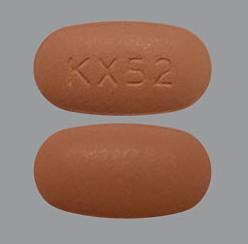Ferric Citrate Side Effects
Medically reviewed by Drugs.com. Last updated on Apr 7, 2025.
Applies to ferric citrate: oral tablet.
Precautions
It is very important that your doctor check your progress at regular visits to make sure that this medicine is working properly. Blood tests may be needed to check for unwanted effects.
Tell your doctor if you have severe or persistent diarrhea, constipation, nausea, or vomiting while using this medicine.
This medicine may cause dark-colored stools. This is normal when you take medicines containing iron and is nothing to worry about.
Do not take other medicines unless they have been discussed with your doctor. This includes prescription or nonprescription (over-the-counter [OTC]) medicines and herbal or vitamin supplements.
Serious side effects of ferric citrate
Along with its needed effects, ferric citrate may cause some unwanted effects. Although not all of these side effects may occur, if they do occur they may need medical attention.
Check with your doctor immediately if any of the following side effects occur while taking ferric citrate:
More common side effects
- confusion
- difficulty breathing
- irregular heartbeat
- nausea
- nervousness
- numbness or tingling in the hands, feet, or lips
- stomach pain
- vomiting
- weakness or heaviness of the legs
Other side effects of ferric citrate
Some side effects of ferric citrate may occur that usually do not need medical attention. These side effects may go away during treatment as your body adjusts to the medicine. Also, your health care professional may be able to tell you about ways to prevent or reduce some of these side effects.
Check with your health care professional if any of the following side effects continue or are bothersome or if you have any questions about them:
More common side effects
- cough
- dark-colored stools
- diarrhea
- difficulty having a bowel movement
See also:
For healthcare professionals
Applies to ferric citrate: oral tablet.
General adverse events
The most common adverse events were gastrointestinal events.[Ref]
Gastrointestinal
- Very common (10% or more): Discolored feces (22%), diarrhea (21%), constipation (18%), nausea (11%)
- Common (1% to 10%): Vomiting, abdominal pain[Ref]
Metabolic
- Common (1% to 10%): Hyperkalemia[Ref]
Respiratory
- Common (1% to 10%): Cough[Ref]
References
1. (2015) "Product Information. Auryxia (ferric citrate)." Keryx Biopharmaceuticals, Inc.
More about ferric citrate
- Check interactions
- Compare alternatives
- Pricing & coupons
- Reviews (8)
- Drug images
- Dosage information
- During pregnancy
- Drug class: phosphate binders
- Breastfeeding
- En español
Patient resources
Other brands
Professional resources
Other brands
Related treatment guides
Further information
Ferric citrate side effects can vary depending on the individual. Always consult your healthcare provider to ensure the information displayed on this page applies to your personal circumstances.
Note: Medication side effects may be underreported. If you are experiencing side effects that are not listed, submit a report to the FDA by following this guide.

